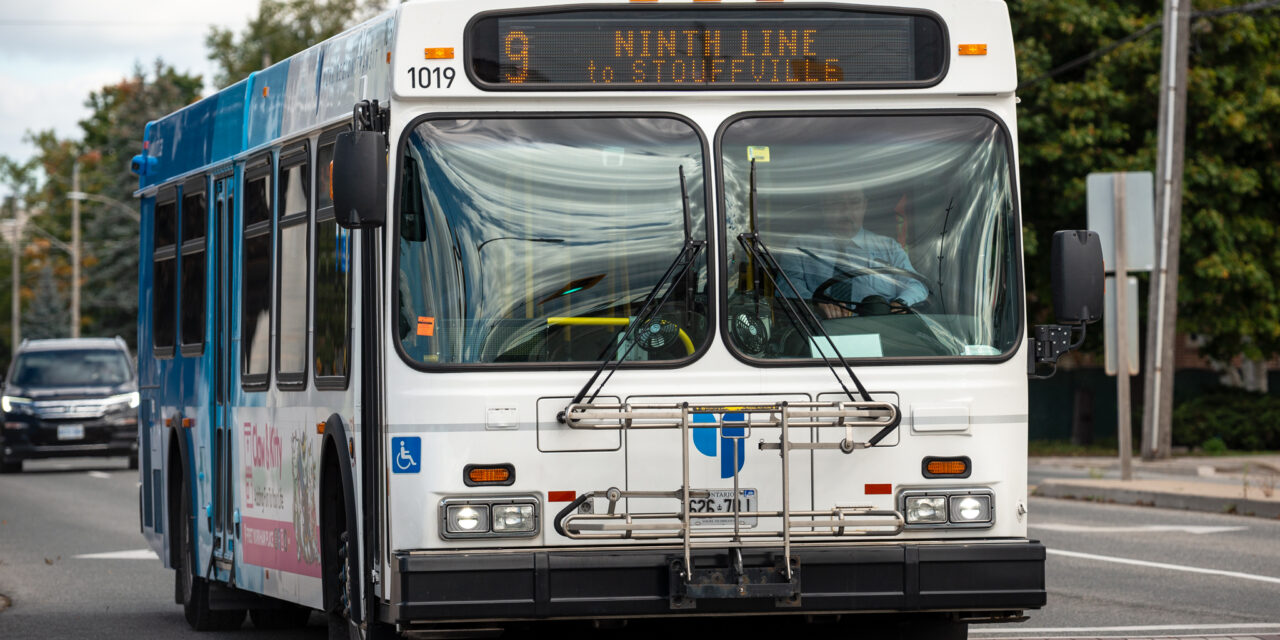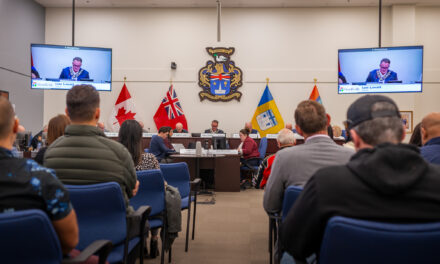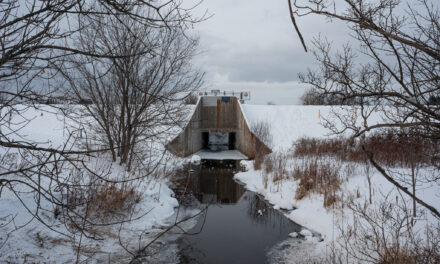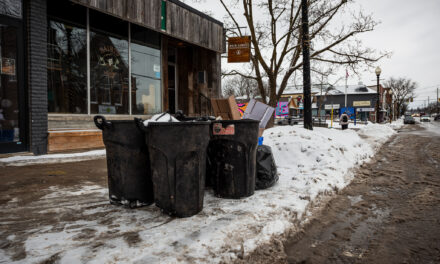- York Region Transit (YRT) set an all-time record in 2024 with 23.7 million passenger trips, a 12 percent increase over the previous year.
- Cross-boundary trips to Toronto surged nearly 28 percent following implementation of the One Fare Program’s launch.
- Officials are urging the Province to make the One Fare Program permanent as its initial term is set to expire next year.
- YRT increased service hours by 10 percent and implemented 108 service improvements throughout the year.
- On-Request and Mobility On-Request ridership grew by 25 percent.
- On-time performance exceeded strategic targets across all service types despite remaining just below 2022 levels.
- York Region purchased 80 new electric buses in 2024 as part of its long-term zero-emissions transition plan.
York Region Transit (YRT) capped off 2024 with a record-setting milestone, surpassing 23.7 million passenger trips for the year. According to an annual system performance report, that figure marks a 12 percent year-over-year increase and a pivotal step in the transit authority’s post-pandemic recovery.
The growth was fueled by a wide range of service enhancements. Over the course of 2024, YRT implemented 108 service upgrades and boosted overall service hours by 10 percent to 1.4 million. Weekday boardings climbed 16 percent, with even sharper increases on weekends—18 percent on Saturdays and 12 percent on Sundays.
Ridership surged on demand-responsive services, including On-Request for lower-density areas and Mobility On-Request for riders with disabilities. Both services reported a 25 percent increase in trips last year.
System-wide reliability remained relatively strong. On-time performance rates stood at 93 percent for conventional buses, 96 percent for Viva rapid transit, and 93 percent for on-demand services. While still slightly below 2022 benchmarks, the rates exceeded the Region’s strategic targets.
A major catalyst for ridership growth came from the launch of Ontario’s One Fare Program in 2024, which eliminated the double fare between YRT and the Toronto Transit Commission (TTC). Cross-boundary trips between York Region and Toronto leapt 27.6 percent to 7.64 million following implementation, accounting for nearly a third of all YRT trips.
To offset fare revenue losses, the Province reimbursed YRT $15.87 million. With the program’s initial two-year term set to expire in March 2026, Regional Staff recommended further advocacy for its continuation, citing it as a clear success in boosting ridership and regional mobility.
“York Region has been taking the lead for a one fare system in the GTA, it’s been years that we’ve been advocating for [it],” Markham Mayor Frank Scarpitti said during Regional Council’s April 10 Committee of the Whole meeting. “It finally gets in a place…[and] it almost finishes before it starts.”
Scarpitti introduced and secured approval for an amendment requesting a stronger advocacy position be communicated directly to Ontario Minister of Transportation Prabmeet Sarkaria.
“Let’s not water this down to say ‘we advocate.’ We want this to be permanent, the residents of York Region want it to be permanent,” he said. “ This government made a big deal about the fact that they introduced this program, now I want them to make as big a deal about keeping it permanent.”
In the report, Staff caution that maintaining service reliability will require additional resources as major capital projects proceed, including the Yonge North Subway Extension.
Regional Councillor Mario Racco highlighted recent public feedback in support of transit expansion but urged further funding from the Province. He also noted the need for transit service and infrastructure to match growth in places like Vaughan, where city planners are considering parking requirements as low as 0.5 spaces per unit.
“This requires significant public transportation,” he said. ”We are doing it…to respond, to some degree, to the shortage of housing, and also to minimize building new roads that will cost millions of dollars and create more pollution. It is the right way to go.”
York Region’s commitment to more sustainable transit also advanced in 2024 with the purchase of 80 new battery-electric buses. This follows a 2023 order for 75 similar vehicles, with the new buses expected to begin arriving in late 2026.
These investments form part of YRT’s Transit Bus Fleet Electrification Plan, which aims to fully transition the fleet to zero-emission vehicles by 2051. The initiative is supported by a $76 million grant from Housing, Infrastructure, and Communities Canada, along with $136 million in low-interest financing from the Canada Infrastructure Bank.
The program is projected to deliver a total of 180 electric buses and the infrastructure necessary for fleet-wide adoption.
YRT’s revenue-to-cost ratio also continued its upward trend, recovering from a pandemic-era low of 21 percent. In 2024, fare revenue reached $85 million, raising the ratio to 39 percent—up from 36 percent in 2023, though still below the 41 percent mark set in 2019.
A fare increase introduced in July 2024 contributed to the recovery, and another 3 percent hike is planned for July of this year.





